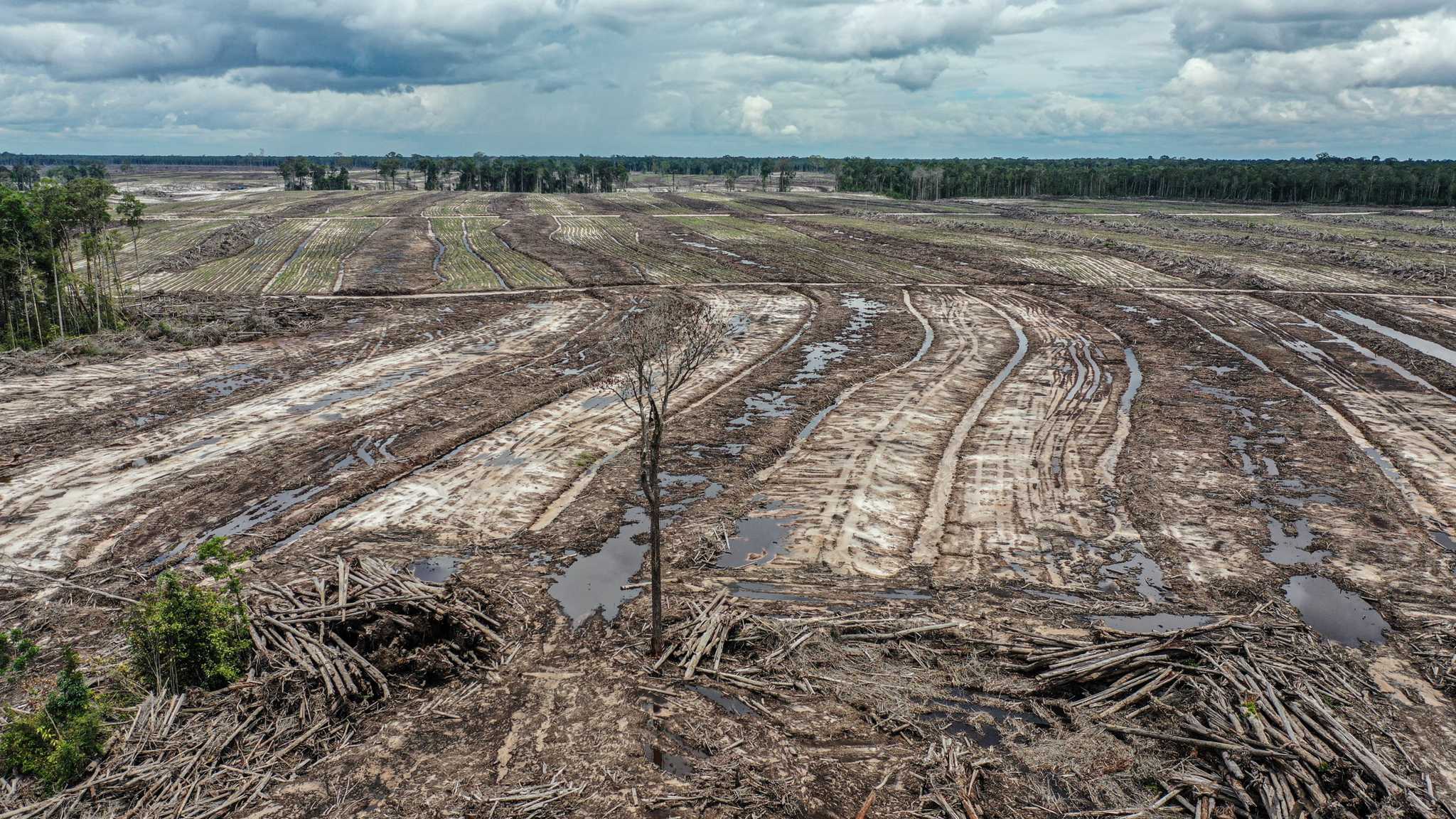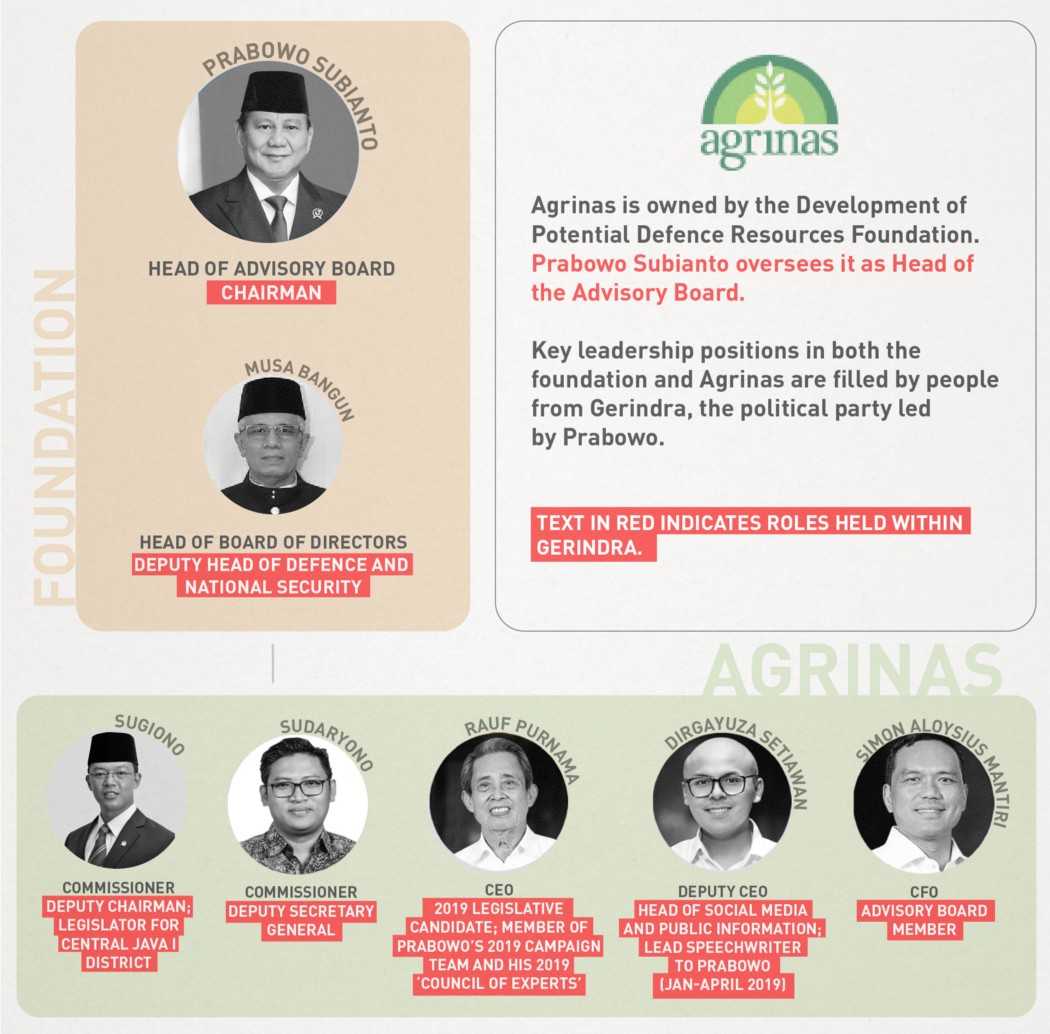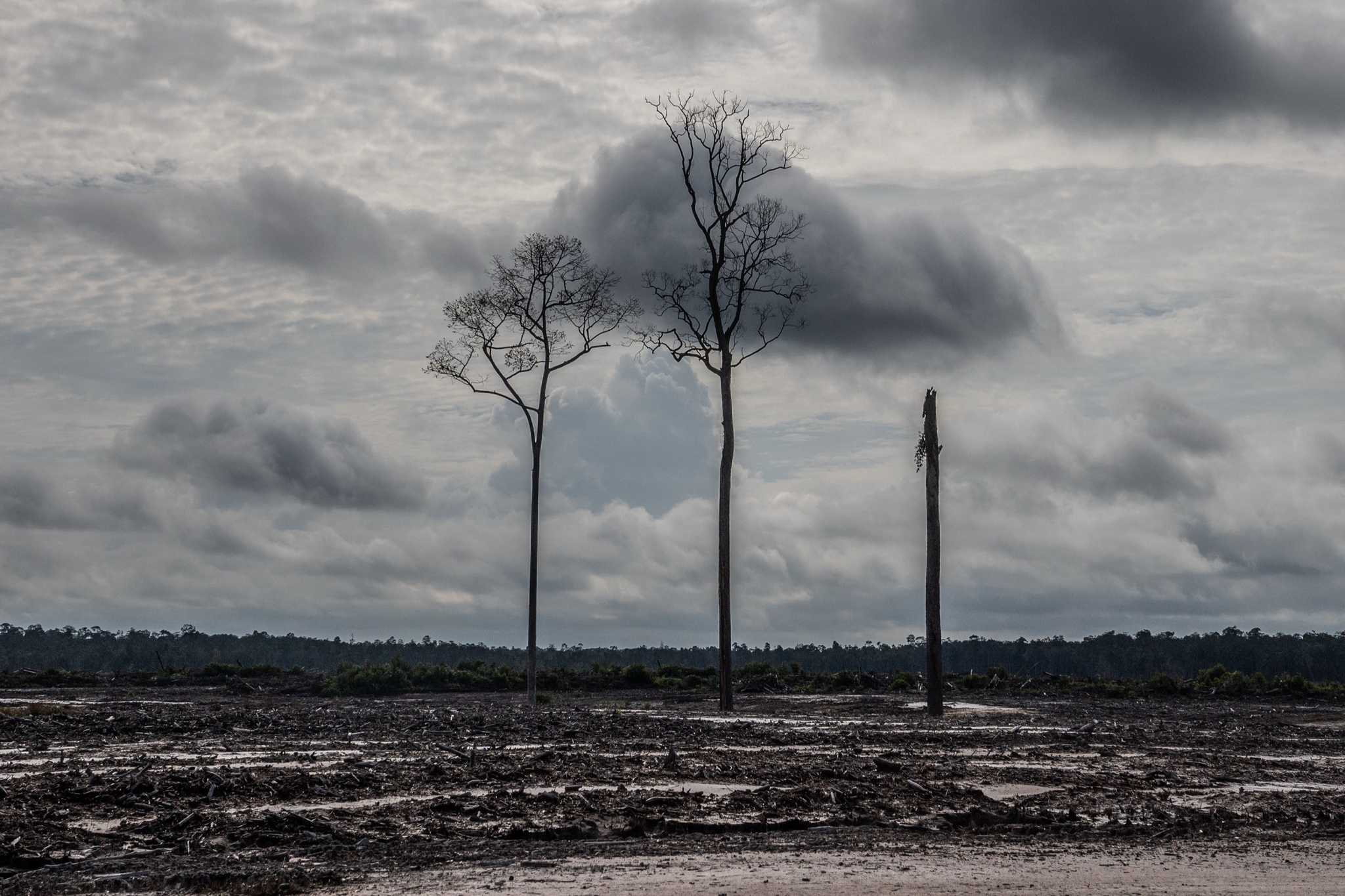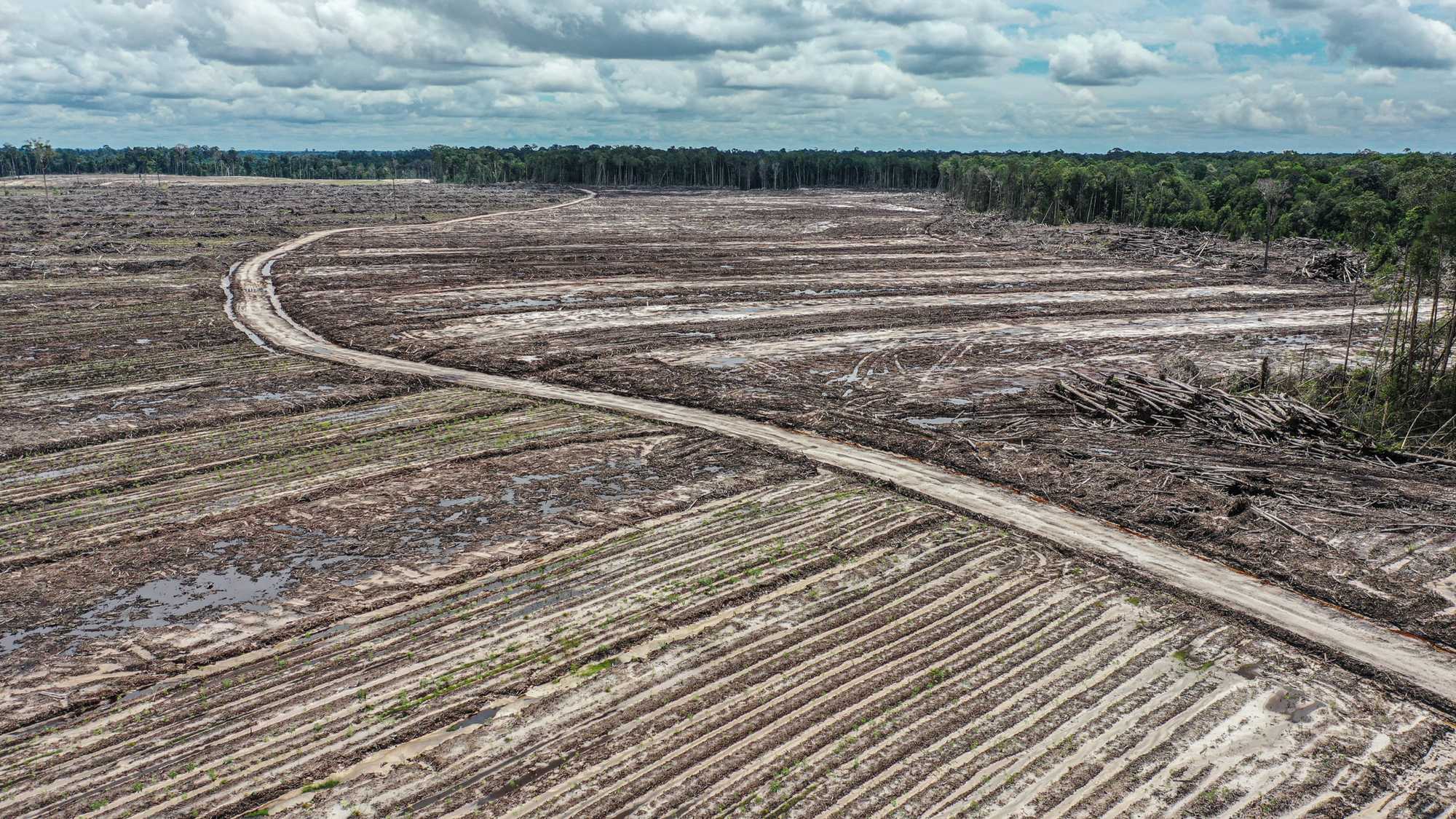At this year’s G20 summit in Bali, Indonesia’s Minister of Defence Prabowo Subianto proposed a solution to the global food crisis. “Cassava will prove to be the saviour crop of the world,” he told a fringe meeting in November.
Prabowo has been talking up cassava since at least 2019, during his failed bid for Indonesia’s presidency. Since entering government, he has been pushing the crop hard, as part of the country’s “food estate” programme, an attempt to ramp up agricultural production and mitigate potential shortages created by the COVID-19 pandemic. The Ministry of Defence, which was put in charge of running parts of the initiative, announced that it wanted to have more than 1m hectares of land given over to cassava by 2025.
In November 2020, shortly after Indonesia had formalised its food estate policy, the Ministry of Defence started work on a patch of Borneo rainforest in Gunung Mas, hacking back the trees to clear 600 hectares of land for cassava. The area had not been zoned for agribusiness, let alone for a food estate project.
Last year, an investigation by the Gecko Project and Tempo found that the ministry exploited a loosening of regulations and oversight during the pandemic. The investigation found evidence that the ministry had attempted to steer food estate projects potentially worth billions of dollars to a company linked to its senior leadership, which had no track record in developing plantations.
But despite the enormous environmental cost of the projects, evidence from Gunung Mas shows that the project seems to have failed. In the area in Gunung Mas where Prabowo’s first cassava plantation was supposed to stand, much of the land appears barren.
“Has the food estate addressed the food crisis? Our answer is no,” Muhamad Habibi, director of environmental NGO Save Our Borneo, based in the provincial capital, Palangkaraya, said. “Two years in development and still no production.”

The 2021 investigation by Gecko Project and Tempo centred around a company, Agro Industri Nasional (Agrinas), which claimed to be working with the Ministry of Defence on the food estate programme. The firm was overseen by individuals from Prabowo’s inner circle, including officials in his party and staff on his presidential campaign team.
Both Agrinas and the Ministry of Defence have denied that they had a partnership. However, several current and former Agrinas employees still list on their LinkedIn profiles that they were employed simultaneously by the Defence Ministry. Two mention that they received certificates from the Indonesian Army, after completing training offered to Agrinas employees. One explicitly says he coordinated with Agrinas as supervisor for the Ministry of Defence. Sources in Gunung Mas, including the district head and a lieutenant-colonel working on site, described Agrinas as central to the project, and said it was managing the site.
The Gunung Mas project was developed rapidly. Even before the new regulations governing the food estate programme had been formally approved by the government, the Ministry of Defence was already meeting with villagers and officials in Gunung Mas to discuss its project. The land clearance began just three weeks after the rules had been finalised. According to the regulations, the ministry was supposed to have conducted public consultations for a strategic environmental assessment before it began. Those consultations began three months after the clearing had already started.

It appears that the project went ahead without sufficient planning, feasibility studies and permits, and without proper budgeting. Even as they rushed to clear the forest, neither the Ministry of Defence nor Agrinas seemed to have funding in place to develop the land they were opening up.
That was still true by July 2022, when Ida Bagus Purwalaksana, a retired lieutenant-general working on the defence ministry’s food security programs, told reporters from Kompas that, “there’s no budget to cultivate cassava because there really is no budget for the Ministry of Defence to create a food estate.”
This explanation raises further questions about the planning of the project. Adrianus Eryan, a legal researcher with the Indonesian Centre for Environmental Law said that it would be unusual for a national strategic project, like the food estate, to falter because of a funding shortfall. The programme has already received 1.5 trillion rupiah ($965m) since its creation two years ago, and the Ministry of Agriculture recently said it would allocate the same amount next year.
"It’s as if the failure or success of a project isn’t important."
It seems as though, having failed to get budget from the state, Agrinas looked overseas for funding. A publicly available document on the South Korean Ministry of Foreign Affairs website appears to show that Agrinas hoped to pitch the Korean government.
The document describes Agrinas’ plans to create a cassava plantation, notes the company’s links to the Indonesian government, and says that the project had the potential to both bring in billions of dollars and contribute to South Korea’s own food security goals. Its metadata shows the author was the then-deputy CEO of Agrinas, Dirgayuza Setiawan. In response to questions during Gecko Project and Tempo’s investigation last year, Agrinas denied it had pitched the South Korean government.
The failure of the project speaks to a slapdash approach to planning, according to Habibi. “It’s as if the failure or success of a project isn’t important. That’s what it seems,” he said. “The implementation of the project wasn’t taken seriously, so the results also suffered.”
Among the unanswered questions surrounding the project is what happened to the wood cleared from the site. A conservative estimate values the trees that were cut down in Gunung Mas could be worth several million dollars. Some of the wood was taken away; some was just left to rot on site, according to Habibi.
When Kompas reporters visited the site in June, they found abandoned land and cassava stalks that were too thin to be productive. Locals told them that the soil is sandy and acidic, and farmers can’t get anything to grow.
The failure in Gunung Mas reflects some broader global trends in deforestation. A study recently released in Science found that only roughly half of forest cleared for agricultural development actually becomes farmland, often because projects are ill-conceived or the land is unsuitable to agriculture, the authors said.

According to Dwi Andreas Santosa, a biotechnology professor at the Bogor Agriculture University, the food estate has suffered from the same problems that afflicted previous attempts to expand national food production in Indonesia, with poor planning leading to wasted investments in areas that lack the ecosystems and infrastructure for food production. “The projects have no impact on food production and food security, even though the government has already spent a lot of money on them,” he said.
In areas where farmers have been pushed into growing specialist crops under the food estate project, there have also been reports of crop failures. In Pulang Pisau and Kapuas, Central Kalimantan, Kompas reporters found that rice paddy built atop former peatland failed to meet government targets to harvest three times in a year. In North Sumatra, a study found the push to develop other specialty crops led to a 70 percent decline in rice production, the staple food.
Adrianus, the researcher, gave a grim assessment of the future of the whole food security initiative. “What does that mean for the food estate?” he said. “Failure.”
Read the investigation by The Gecko Project and Tempo here
Main header photo © Muhamad Habibi / Save Our Borneo / Greenpeace.
